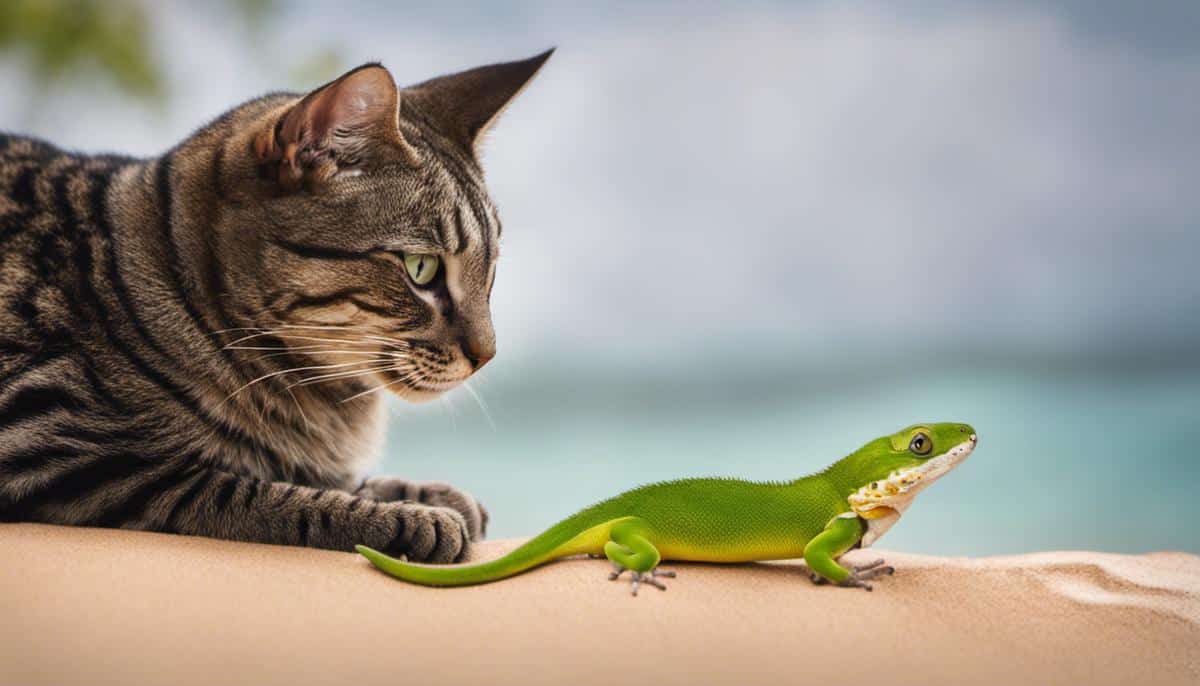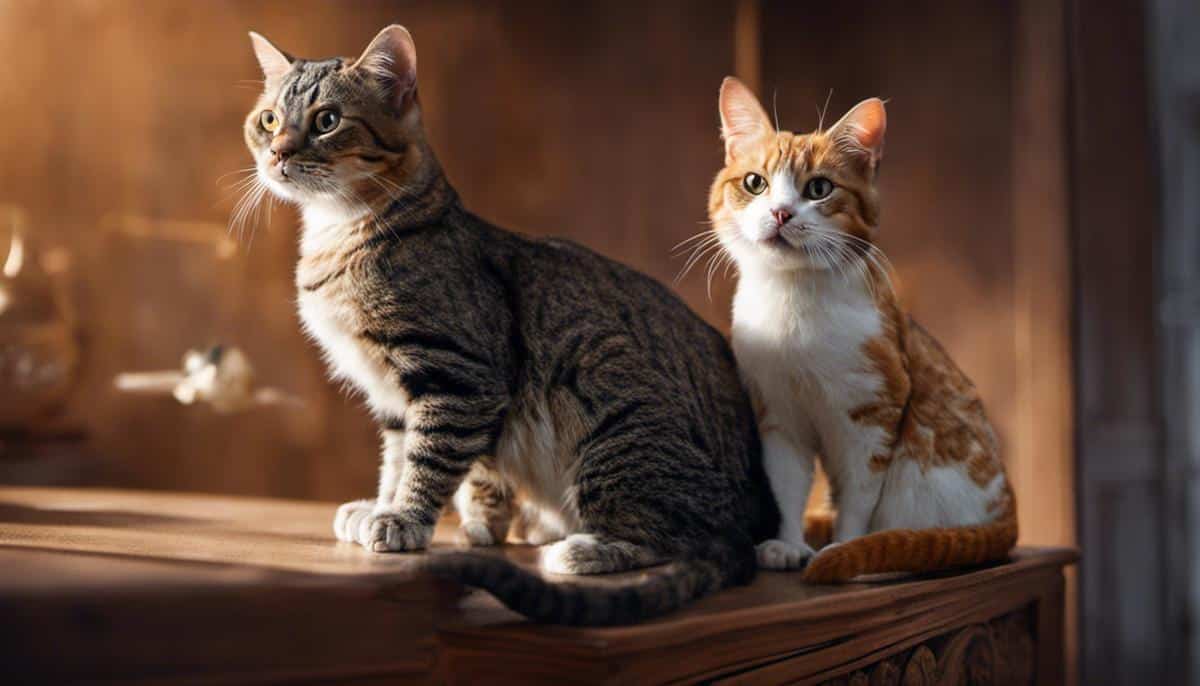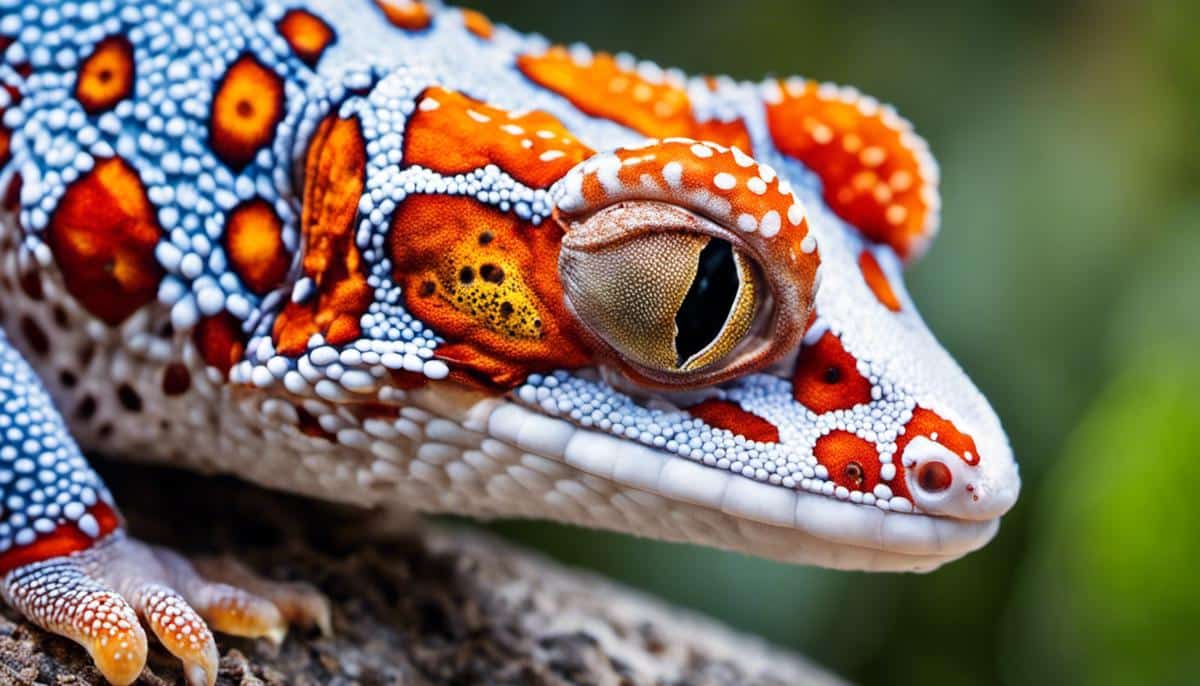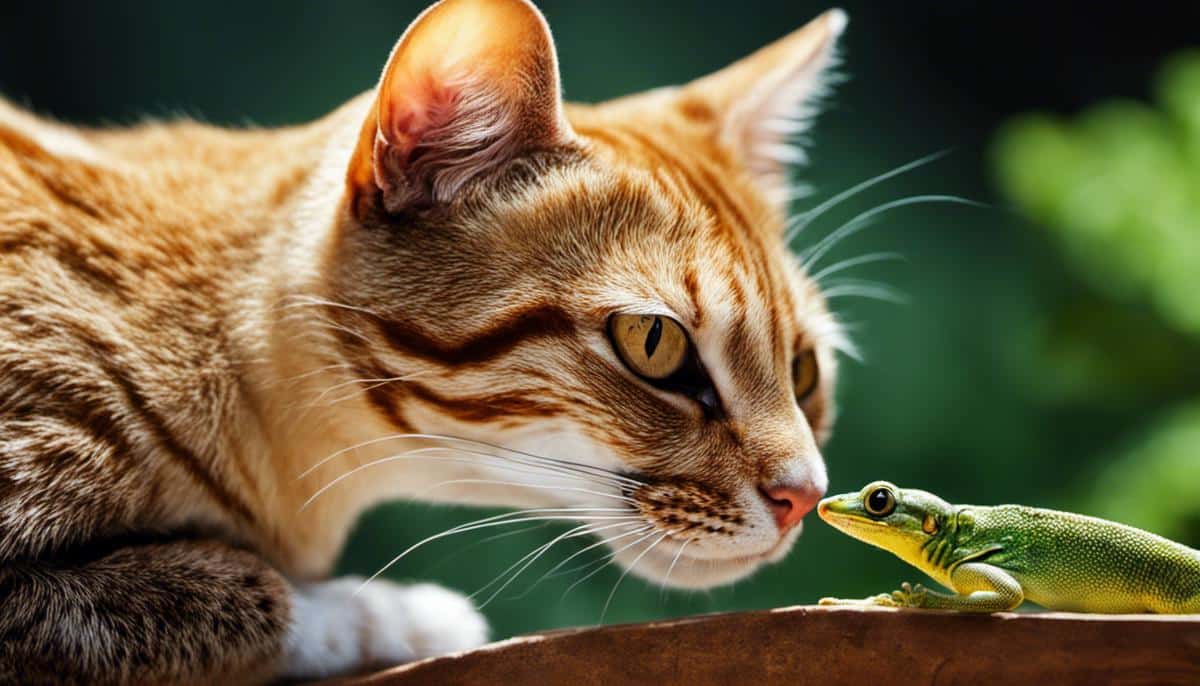
Geckos, small reptiles famed for their vivid colors and adept climbing skills, are often regarded with wonder and curiosity. Yet, for cat owners, this fascination may be tinged with worry, as the potential dangers these creatures may pose to felines remain controversial and unclear. Are geckos truly toxic to our beloved pets, or is it all a culmination of misleading beliefs?
In this illuminating exploration, we aim to untangle the scientific facts on gecko toxicity, delve into the physiological implications of such exposure on cats, consider clinical evidence from veterinarians, and finally, equip cat owners with vital knowledge on preventive measures and treatments. In so doing, our mission is to shed light on the convoluted topic, providing clarity for anxious cat owners and safeguarding the wellbeing of our feline companions.
Understanding Gecko Toxicity
In the world of herpetology, the question of whether geckos are poisonous has been a topic of considerable discourse.
Though a vast majority of gecko species pose little to no threat to humans, a select few species do have a penchant for toxic secretions.
Notably, the Tokay gecko (Gekko gecko) has been identified to possess dermal secretions with mild levels of toxicity.
When threatened, this colorful Southeast Asian gecko can produce a sticky, noxious substance in self-defense that, while non-lethal, may cause skin irritation in human handlers.
However, it is important to clarify that this does not mean geckos are venomous.
Unlike venom, which is actively injected through a bite or a sting, poisons are passive and only impact potential predators if ingested, inhaled, or in some scenarios, touched.
Thus, while a few select gecko species can be considered mildly poisonous, they do not pose a significant threat to humans due to the passive nature and mild toxicity of their defensive secretions.
Current scientific consensus asserts that no gecko species are venomous, making any potential danger to humans extremely minimal.
Research is continually ongoing in this exciting field, seeking to unearth more nuances in the biological defenses of these fascinating creatures.
In essence, while an infinitesimal number of gecko species can technically be classified as poisonous, they pose no substantial threat to human beings.
Any potential for danger is incredibly minor, limited to mild irritations in exceptionally rare cases.
Therefore, the prevalent characterization of geckos as harmless to humans stands fundamentally accurate in the grand realm of herpetological discourse.

Physiological Interaction Between Geckos and Cats
Despite the prevalent consensus that geckos pose a limited threat to humans, the same conclusion cannot hastily be drawn for our feline companions. The system of a common house cat, from a physiological standpoint, is uniquely susceptible to various potentially harmful substances – even those that would be inconsequential to humans. Ensuing discussion must revolve around an understanding of a cat’s physiological features that interact with potential toxins found in geckos.
Notably, cats have an acute sensitivity to terpenoid compounds, a class of organic chemicals that encompass a broad range of naturally occurring substances, including many toxins. Upon the incident where a gecko is ingested by a cat, the cat’s liver will be instrumental in the processing of any potential toxins. Intriguingly, cats have a distinct absence of glucuronyl transferase, a liver enzyme that functions to make toxic substances more water-soluble for speedy elimination. This lack of this specific enzyme results in slower processing and elimination of toxins.
The aforementioned terpenoids, a key component in the toxic secretions of certain gecko species such as the Tokay gecko, have been shown to be metabolized by glucuronyl transferases in other animals. Thus, a cat’s deficiency in this enzyme may lead to a potentially harmful build-up of unmetabolized toxins in its system if a toxic gecko such as the Tokay is ingested. This unique enzymatic footprint in cat physiology elucidates potential vulnerabilities when faced with substances benign to other creatures, thereby forging an avenue of focus in researching interspecies interactions with toxins.

Clinical Cases and Vet Experiences
Veterinary case studies have indeed reported incidents where interactions between cats and geckos have led to intriguing consequences. While these encounters are understandably rare, they offer a rich snapshot of how nature negotiates and neutralizes potential adversity.
Since most gecko species are inherently harmless, instances of adverse interactions typically transpire only with geckos that bear toxic secretions, for instance, the Tokay gecko. For cats, the salient issue arises not from their exposure to geckos but from what happens when that exposure includes ingestion of a toxic gecko species.
Clinical observation of such cases presents a picture layered with complexity. The dynamics of toxin metabolism come into play here, a delicate process governed by the cat’s physiological workings. Cats are notably deficient in certain key enzymes, such as glucuronyl transferases, responsible for toxin neutralization and elimination, an evolutionary hiccup that leaves them vulnerable to the build-up of unmetabolized toxins. A cat that ingests a gecko-like the Tokay, known for its terpenoid-rich secretion, puts itself at risk of pathologies stemming from toxin accumulation.
On ingestion, the toxic secretions of the gecko, buoyed with terpenoids, pose a challenge for the cat’s liver, the primary detox organ. Ordinarily, the liver would neutralize and eliminate these foreign compounds. However, cats’ known deficiency in glucuronyl transferase enhances the risk of a potentially harmful build-up of these toxins that the cat’s body cannot readily metabolize and eliminate. This interaction between the distinctive physiological footprints of both species is a current research interest, with future studies expected to shed more light on how these two dissonant biological notes harmonize into a coherent ecological symphony.
Precautions and Remedies for Cat Owners
In expounding on ways to prevent harm to cats from geckos, a diligent observation approach is key. Geckos are usually active at night, a period often coinciding with increased feline alertness and predatory activity. Hence, it would be prudent for cat owners to ensure their pets are securely indoors during these twilight hours. This modulation in the cat’s internal clock, combined with limited access to potential habitats frequented by geckos can drastically reduce the encounter probability, thus minimizing risk.
In addition to this, pet owners should consider routine veterinary care. Frequent medical examinations can help in the early detection of abnormal symptoms such as excessive salivation or vomiting, which may indicate exposure to toxins. Furthermore, a good understanding of feline behavior can also be beneficial. For instance, changes in the behavior of a cat, such as sudden agitation or loss of appetite, could be potential indicators of having ingested a toxin-rich gecko.
Lastly, education plays a central role. Given the idiosyncratic physiology of felines and the potential risks connected with certain gecko species, it’s crucial for cat owners to be informed about these dangers. Understanding the potential harm and identifying the specific gecko species inhabiting their area can help owners enact appropriate precautions. Remember, the primary objective is to prevent or limit the interaction between cats and geckos to ensure the well-being of man’s other best friend.

We have traversed the domains of physiology, scientific research, and anecdotal veterinary evidence to procure a well-rounded understanding of this contentious issue. The emergent picture highlights not only the importance of monitoring our feline friends’ interactions with geckos but also underscores the necessity for armed knowledge in proper pet care. Despite the compelling discussions, the field still beckons for more in-depth research to succinctly profile potential risks and definitive conclusions. Nonetheless, armed with this comprehensive overview, cat owners are now better equipped to make informed decisions and exercise prudence in their pets’ interactions with geckos. So, let us journey forward with a renewed sense of understanding and responsibility in pet care, ever vigilant yet appreciative of the multifaceted nature of our world.
Legal Disclaimer: This article is provided for informational purposes only. For personalized advice, always consult a professional or specialist regarding any concerns or issues.





Um, this reads as if it is fully AI generated.